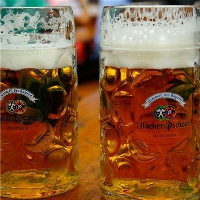Is there a bachelor's degree in the adult college entrance examination?
The adult college entrance examination has a bachelor's degree, but the degree certificate of the adult college entrance examination can only be applied for by candidates at the undergraduate level. Those who reach the average score specified in the teaching plan, pass the graduation thesis or graduation defense, pass the degree English examination and pass the grade, and meet the requirements of the examiners for degree awarding can apply for a degree certificate.
Adult college entrance examination bachelor's degree certificate requirements:
1. Achievements up to standard
When applying for a bachelor's degree, adult college entrance examination undergraduates should complete all the courses and teaching links specified in the teaching plan within the length of schooling specified by the school, and be approved to graduate after examination. They should have a good grasp of the basic theory, professional knowledge and basic skills of the subject, and have the preliminary ability to engage in scientific research and undertake specialized technical work. The average score of major courses is more than 70 points. The main professional courses will no longer be examined separately, and the examination results during the study period will be recognized.
2. Graduation thesis meets corresponding requirements
Undergraduate candidates for adult examinations should independently complete the required graduation thesis to ensure the authenticity of their creation. If they are found to have plagiarized or created by others, they will be punished accordingly and disqualified from applying for a degree. Students applying for a bachelor's degree should also defend their graduation thesis. Generally, candidates who have obtained good or higher grades in their graduation theses after being assessed by their supervisors can apply for a bachelor's degree certificate.
3. Pass the degree English exam
Non English majors must pass the degree English exam organized by the state (English majors must take the second foreign language exam). Some colleges allow students to use CET-4 or self-taught English instead of degree English.
(Note that the applicants for bachelor's degrees are graduates at the undergraduate level. There may be differences in the requirements of colleges and universities for awarding degrees to self-taught students. Please refer to the information officially released by each university!)










